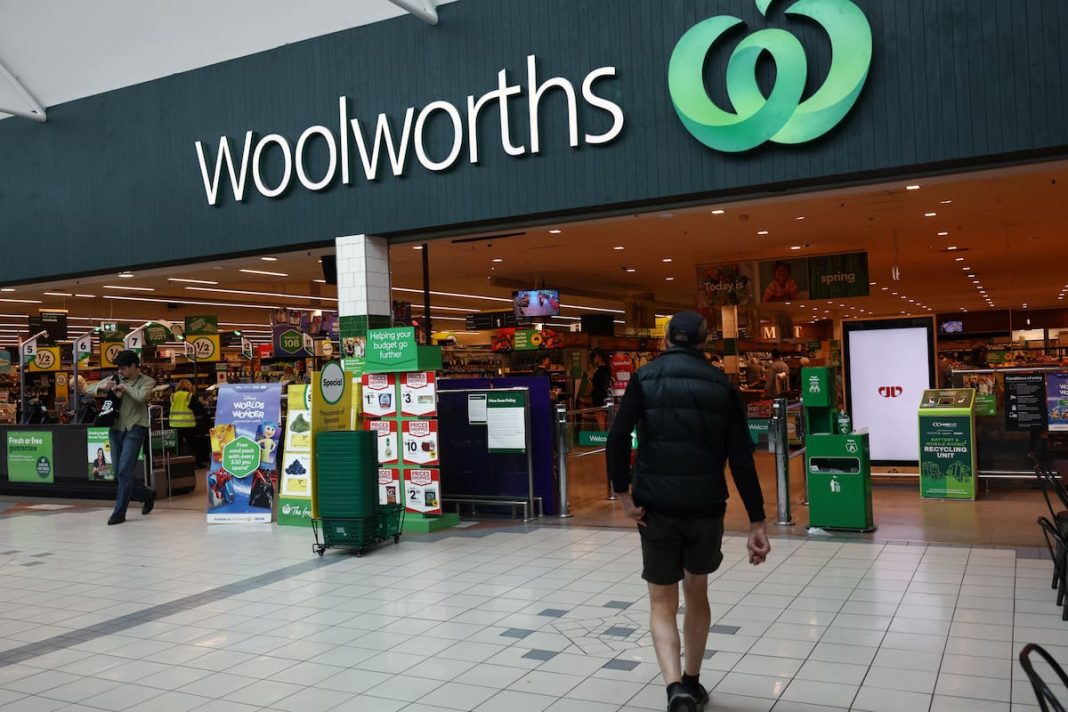Woolworths’ relationship with out-muscled suppliers has been placed under the microscope as the supermarket giant denies throwing its weight around and gouging smaller firms.
Current and former executives again fronted the competition watchdog’s supermarkets inquiry on Tuesday, when the grocery giant was grilled on its relationship with suppliers during a period of increasing profit margins for the company.
The $36 billion food retailer used the prior day’s hearing to claim the supermarket industry was particularly competitive, despite it and Coles dominating with a combined 67 per cent market share.
But many suppliers, particularly fruit and vegetable sellers, have complained the major supermarket chains are hurting their businesses.
Counsel assisting the inquiry Naomi Sharp noted the peak vegetable growers body said 37 per cent of its members were considering walking away, while Fruit Growers Victoria said producers frequently sold pieces for less than they cost to grow because they had no means to pass on their costs.
Woolworths earlier told the inquiry it accessed about 20 per cent of Australia’s fruit and vegetable supply, denying that was a large amount.
Woolworths CEO Amanda Bardwell was repeatedly asked if her company had a superior bargaining position compared with suppliers.
“We provide the opportunity for fruit and vegetable suppliers to be able to access 20 per cent of total release of supply, which (leaves) 80 per cent of opportunity across a number of other retailers and wholesale markets and the like as well,” she said.
“As far as I’m aware we pay fair prices based on the way the fruit and vegetable market in Australia works … which is supply and demand.”
The Australian Food and Grocery Council has said even the largest product suppliers could not afford to walk away from the big two supermarkets because they represent a big slice of the consumer pie.
But Ms Bardwell denied that limited their ability to negotiate.
“Suppliers have choice and our large suppliers would have a number of different partners in this country they could be working with,” she said.
Earlier, former Woolworths managing director Natalie Davis admitted she didn’t understand rebates the supermarket giant expected from suppliers, despite their role in helping executives hit profitability pay bonuses.
Asked if she had a good understanding of the rebates – a percentage of suppliers’ sales they had to remit back to the supermarkets to fund promotions – Ms Davis replied: “No.”
Australian Competition and Consumer Commission deputy chair Mick Keogh questioned how Ms Davis, who’s now CEO of Ramsay Health Care, could have signed off on profitability bonuses without knowing what role rebates played in the payouts
“Doesn’t that mean there would be good information flowing through to you about profitability which, of course, incorporates the extent to which rebates are funding things like sales?” he asked.
The commission’s interim report noted some suppliers had raised the issue of being required to pay rebates to supermarkets to finance specials or to receive quicker payments from the grocery chains.
The commission’s final report is due in February.
The watchdog is separately taking legal action against the two big retailers after accusing them of misleading customers with fake discounts.



